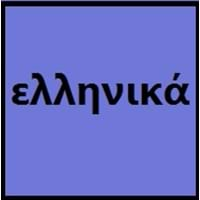Countries
Cyprus, European Union, Greece
Angola, Brazil, Cape Verde, East Timor, Equatorial Guinea, Guinea-Bissau, Macau, Mozambique, Portugal, São Tomé and Príncipe
National Language
Albania, Cyprus, Egypt, France, Greece, Italy, Romania, Turkey, Ukraine
Portugal
Second Language
Roman Empire
United States of America
Speaking Continents
Asia, Europe
Africa, Asia, Australia, Europe, South America
Minority Language
Albania, Armenia, Australia, Hungary, Italy, Romania, Turkey, Ukraine
Australia, Daman and Diu, France, Germany, Goa, Italy, Japan, United States of America
Regulated By
Center for the Greek language (Κέντρον Ελληνικής Γλώσσας)
Academia Brasileira de Letras (Brazilian Literary Academy), Academia das Ciências de Lisboa, Classe de Letras
Interesting Facts
- Greek is the longest documented language of all the Indo-European Langauges.
- The official language of education in the Roman Empire was Greek.
- Portuguese language has absorbed many words from French, Italian, Arabic and also from indigenous South American and African languages.
- The first written document in Portuguese language was found in the 12th century.
Similar To
Armenian
Spanish and Galician Languages
Alphabets in
Greek-Alphabets.jpg#200
Portuguese-Alphabets.jpg#200
Scripts
Arabic, Latin
Latin
Writing Direction
Left-To-Right, Horizontal
Left-To-Right, Horizontal
Hello
γεια σας (geia sas)
Olá
Thank You
ευχαριστώ (ef̱charistó̱)
obrigado
How Are You?
πώς είσαι (pó̱s eísai)
Como você está?
Good Night
Καληνυχτα (Kali̱nychta)
boa noite
Good Evening
καλησπέρα (kali̱spéra)
boa Noite
Good Afternoon
Καλὸ ἀπόγευμα (Kaló apóyevma)
boa Tarde
Good Morning
καλημέρα (kali̱méra)
bom Dia
Please
παρακαλώ (parakaló̱)
Por Favor
Sorry
συγνώμη (sygnó̱mi̱)
pesaroso
I Love You
Σε αγαπώ (Se agapó̱)
Eu te amo
Excuse Me
Με συγχωρείτε! (Me synhoríte)
desculpe me
Dialect 1
Cappadocian Greek
Brazilian Portuguese
Where They Speak
Greece
Brazil
Dialect 2
Griko
European Portuguese
Where They Speak
Italy
Portugal
Dialect 3
Mariupol
Daman and Diu Portuguese creole
Where They Speak
Ukraine
Daman and Diu
How Many People Speak
Not Available
Second Language Speakers
Not Available
Native Name
ελληνικά
Português
Alternative Names
Ellinika, Graecae, Grec, Greco, Neo-Hellenic, Romaic
Português
French Name
grec moderne (après 1453)
portugais
German Name
Neugriechisch
Portugiesisch
Pronunciation
[eliniˈka]
[puɾtuˈɣeʃ], [poʁtuˈɡes]
Ethnicity
Greeks or Hellenes
Portuguese people or portugueses
Origin
1500 BC
3rd Century
Language Family
Indo-European Family
Indo-European Family
Subgroup
Hellenic
Romance
Branch
Not Available
Not Available
Early Forms
Proto-Greek, Mycenaean Greek, Ancient Greek, Koine Greek and Medieval Greek
Medieval Galician
Standard Forms
Modern Greek
Portuguese
Signed Forms
Greek Sign Language
Signed Portuguese
Scope
Individual
Individual
ISO 639 6
ells
Not Available
Glottocode
gree1276
port1283
Linguasphere
56-AAA-a
51-AAA-a
Language Type
Living
Living
Language Linguistic Typology
Subject-Verb-Object
Subject-Verb-Object
Language Morphological Typology
Fusional, Synthetic
Not Available
Greek and Portuguese Greetings
People around the world use different languages to interact with each other. Even if we cannot communicate fluently in any language, it will always be beneficial to know about some of the common greetings or phrases from that language. This is where Greek and Portuguese greetings helps you to understand basic phrases in Greek and Portuguese language. Greek word for "Hello" is γεια σας (geia sas) or Portuguese word for "Thank You" is obrigado. Find more of such common Greek Greetings and Portuguese Greetings. These greetings will help you to be more confident when conversing with natives that speak these languages.
Greek vs Portuguese Difficulty
The Greek vs Portuguese difficulty level basically depends on the number of Greek Alphabets and Portuguese Alphabets. Also the number of vowels and consonants in the language plays an important role in deciding the difficulty level of that language. The important points to be considered when we compare Greek and Portuguese are the origin, speaking countries, language family, different greetings, speaking population of these languages. Want to know in Greek and Portuguese, which language is harder to learn? Time required to learn Greek is 44 weeks while to learn Portuguese time required is 24 weeks.





